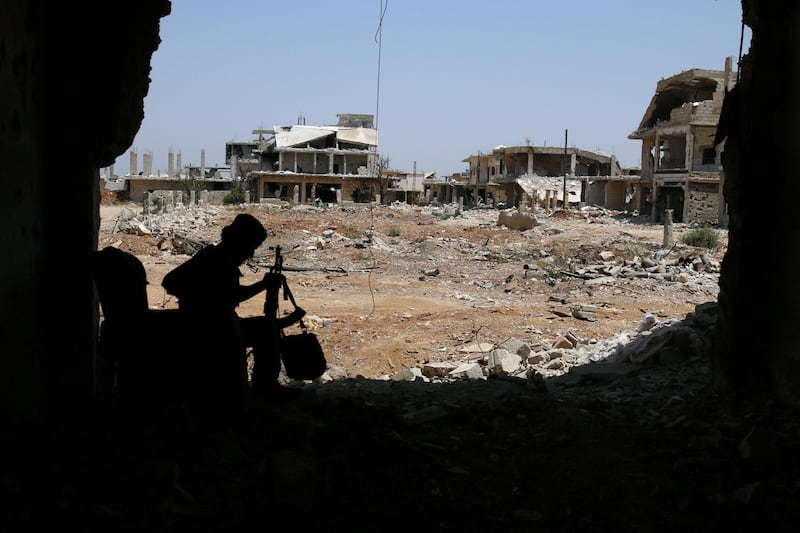Russia has deployed military police to monitor two safe zones being established in Syria, the defence ministry in Moscow said on Monday.
Senior commander Sergei Rudskoi said Russian forces had set up checkpoints and observation posts around a zone in south-west Syria and in another one covering Eastern Ghouta, near Damascus.
The announcement marks the first deployment of foreign troops to enforce four "de-escalation zones" being created in rebel-held areas under a Moscow-backed plan to pacify Syria's six-year civil war.
Lieutenant General Rudskoi said Russian personnel had set up two checkpoints and 10 observation posts along the fronts between rebel forces and government troops in the southern zone.
Russia, the United States and Jordan struck a deal earlier this month to fix the boundaries of this zone and impose a ceasefire in the area.
Gen Rudskoi said Moscow had informed Israel of its deployment and that the nearest Russian position is 13 kilometres from the demarcation line between Israeli and Syrian troops in the Golan Heights.
Russian forces on Monday also set up two checkpoints and four observation posts in the area covering the rebel-held Eastern Ghouta region near Damascus, another of the proposed de-escalation zones, after striking a deal with "moderate" rebels over the weekend in Egypt, Gen Rudskoi said.
The Syrian army had announced a halt in fighting for parts of Eastern Ghouta on Saturday, but regime war planes still carried out raids, according to a London-based monitor.
Syrian president Bashar Al Assad's forces have surrounded Eastern Ghouta for more than four years, and have targeted the area regularly.
The agreement to set up de-escalation zones was reached in May at peace talks in the Kazakh capital Astana that are being sponsored Russia and Iran, both allies of Syrian president Bashar Al Assad, and Turkey, a supporter of rebel groups. It calls for halting the use of all weapons, including air strikes, and allowing humanitarian aid to enter those areas.
On the other two proposed safe zones, Gen Rudskoi said that boundaries had been fixed in the north of the Homs province but were still to be agreed for Idlib, a rebel-held province on the border with Turkey.
Further discussions on details of those two zones are to take place at a fresh round of peace talks in Kazakhstan in late August.
Russian foreign minister Sergei Lavrov on Monday praised the creation of the safe zones, saying it showed that Russia could work with the United States under president Donald Trump.
He said the fact that Russian president Vladimir Putin and Mr Trump agreed on the de-escalation zone in southern Syria at their first meeting during the G20 summit in Hamburg was "a concrete example that we can work together".
Mr Lavrov contrasted the negotiations with Barack Obama's administration, which he said "turned out to be incapable of separating terrorists from the normal opposition" in Syria.
"Only now through the concept of safe zones are we getting results in this area," Mr Lavrov said in an interview with the Kurdish TV station Rudaw.
Agence France-Presse





